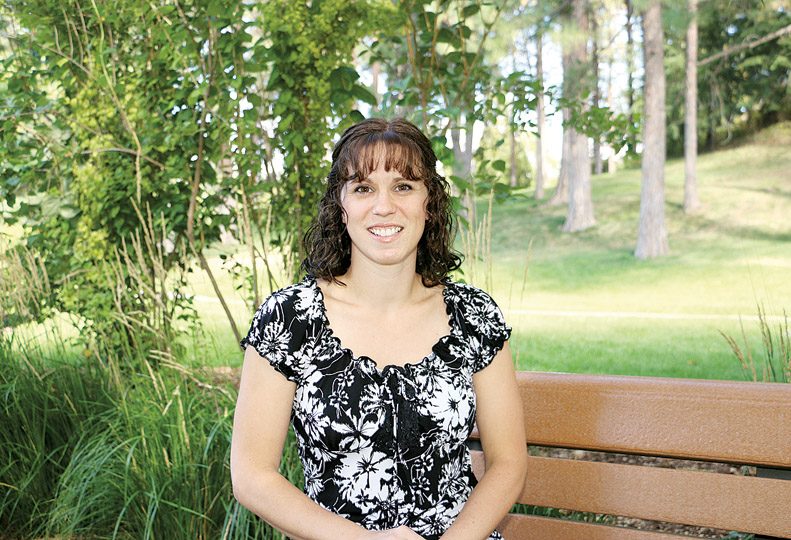
Home » Environmental scientists group kicks off season
Environmental scientists group kicks off season
Society hosts speakers on ecological issues

September 11, 2014
Ecological professionals and those who are passionate about environmental issues can find a home with the Society of Inland Northwest Environmental Scientists (SINES), a nonprofit environmental networking organization here.
The society, which meets monthly, officially kicked off its meeting season here on Sept. 10, says President Christina Carlsen.
SINES brings in speakers to present at its meetings, which fall on the second Wednesday of the month from September through February, Carlsen says. Topics range from various cleanup projects and water sanitation to mining, and clean energy.
The society, which launched in 1993, began as a way for scientists in the environmental fields to network with one another, says Carlsen.
“We’re a fairly small community, and we’re all scattered between different companies and different projects,” she says. “Before, there wasn’t a way for us to have a network.”
In addition to being president of the board of directors for SINES, Carlsen is an environmental geologist-in-training at Spokane-based environmental cleanup services company Able Clean-up Technologies Inc. She’s also a student at Whitworth University in the Master in Teaching program.
At its first meeting this year, which took place at Luigi’s Italian Restaurant downtown, the presentation was on the Oso mudslide, which occurred on March 22 just east of Oso, Wash. An unstable hill collapsed, sending mud and debris across the north fork of the Stillaguamish River, destroying houses and killing dozens of people.
“That’s the kind of topic we like to have,” Carlsen says. “It’s something people are really interested in: what kind of planning failure caused that to happen, what the aftermath was, and how we go forward.”
In October, SINES will host a speaker from the Grant County Public Utilities District who will give a presentation on a crack in the Wanapum Dam in Vantage, Wash., she says.
“That’s a topic that the local community has some interest in,” Carlsen says. “Last winter when it happened, it was a fairly newsworthy issue, so we worked over the summer to get a rep to come in and talk about what’s going on there.”
In February, the group hosted a presentation on the cleanup of the Kendall Yards area, Carlsen says. At 85 attendees, it was the highest-attended meeting for the year. Speakers from Spokane-based Teck American Inc. and GeoEnginers Inc., as well as San Francisco-based URS Corp. discussed how the soil in the area was readied for development, she says.
The main goals of the SINES are to promote a network for environmental scientists and promote environmental education, Carlsen says. The society has offered scholarships to North Idaho College and Eastern Washington University in the past, she says. Members also volunteer within the community as judges for high school-level Science Olympiad competitions.
The monthly meetings typically begin with food and a networking hour, Carlsen says. The presenting speaker begins after the social hour, and the presentation usually runs between 45 and 60 minutes.
“Afterward, people are invited to stay and hang out,” she says.
SINES is open to the public for membership, Carlsen says, and dues are $20 a year. It also has an informational email distribution list, which is free, she says.
“The benefits to being a member are that, as a member, you’re supporting our mission by (financially) sponsoring speakers and promoting the network,” Carlsen says.
In addition to members’ dues, SINES also is funded by corporate members and corporate sponsors, Carlsen says. A corporate member can be any local business or entity, and the membership costs $300 a year in dues.
“They get their name on our website, and they get recognized at meetings as a corporate member,” Carlsen says.
A corporate sponsor, she says, funds a specific meeting. The sponsorship is $300 as well, or a company can be both a corporate member and sponsor a meeting for $500, Carlsen says.
“When a business or entity wants to sponsor a specific meeting, then they get to do a short presentation before the meeting and introduce the speaker for the night,” she says. “The sponsorship helps to pay for the food at the meetings … if we’re having a speaker from a specific company it’s not uncommon for that company to also sponsor the meeting. They bring small gift bags, and can answer questions about their business. It gives them the spotlight for a bit.”
Members of the SINES board of directors, which currently includes seven members and four officers, work individually to secure speakers, Carlsen says, using their connections in the community to find presenters.
“We always have a wish list for what we’d like to hear,” she says. “That’s really what we strive for on the board, to make those connections and bring in those quality speakers.”
The officers of the board of directors serve two-year terms, Carlsen says. Non-officer members can serve for as long as they like, she says.
“We also have kind of an emeritus status for those who remain on the board but don’t want to be active,” she says. “After seven years they can go to the emeritus group. They still have voting rights, but it’s an accumulated vote. They vote as a whole, not individuals.”
Next spring, the society is hoping to find a speaker to facilitate a forum-type discussion on a planned expansion at Mt. Spokane Ski & Snowboard Park, which include installing a new chairlift and seven ski runs on the northwest face.
“We’re hoping to have an end-of-ski-season type of time for that discussion,” Carlsen says.
Last fall, the development hit a snag when a state appeals court ruled that the state Parks and Recreation Commission failed to do an environmental impact study before it decided that using the land for the expansion was appropriate. Currently, the commission is asking for public comment on the proposed expansion, closing on Sept. 15.
Up Close
Related Articles



